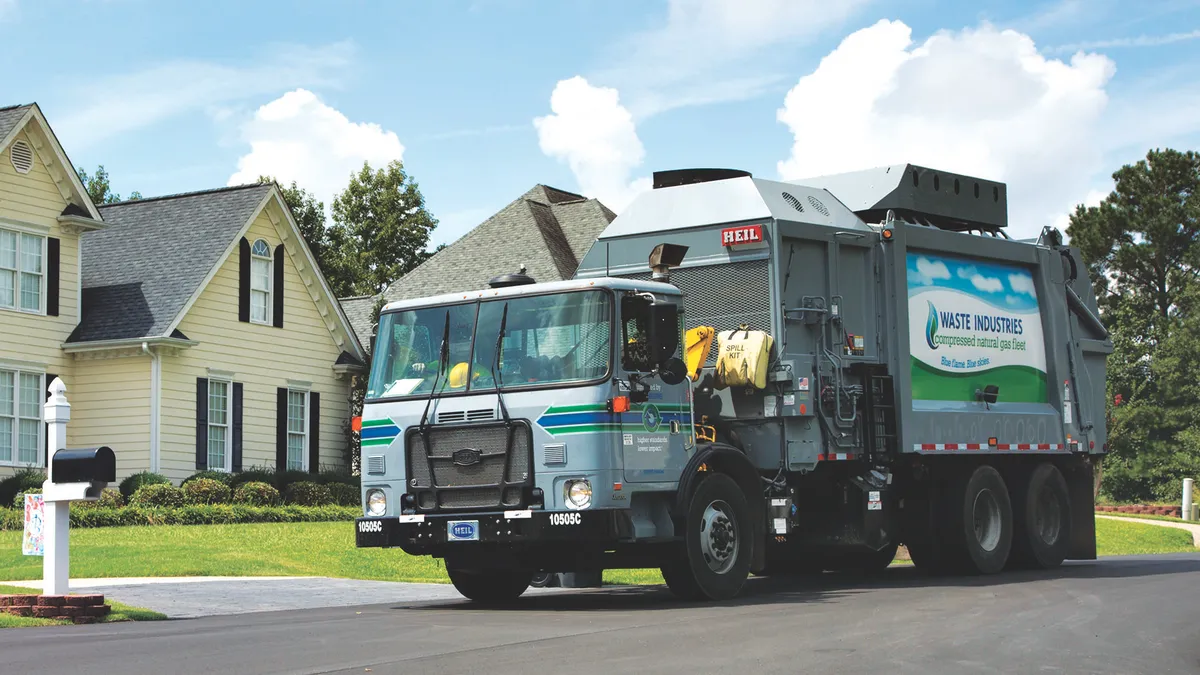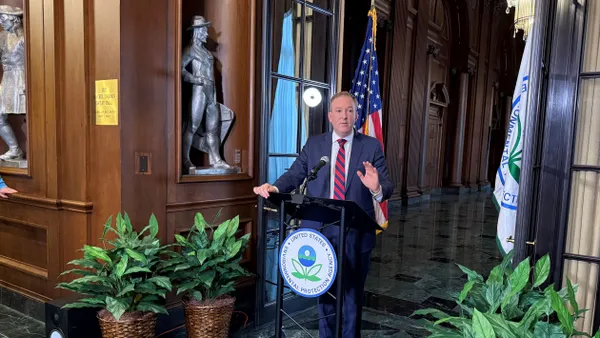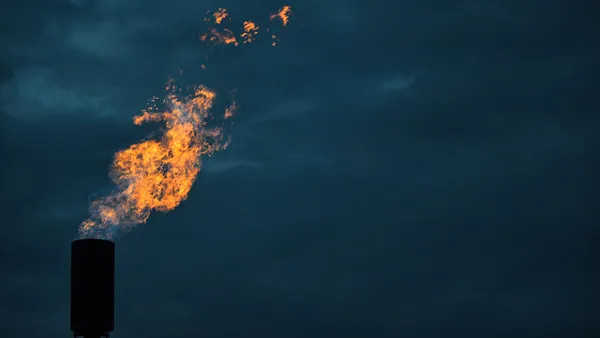Dive Brief:
- A GFL Environmental subsidiary recently reached a settlement over the South Wake Landfill in Holly Springs, North Carolina, WRAL reported, pending approval by a judge. Wake County Disposal LLC will pay $950,000 to residents over odors associated with the site. The company will also invest an additional $1.2 million in odor-reducing equipment and technology.
- That former Waste Industries subsisidary is now the responsibility of Toronto-based GFL after it acquired the company in 2018. The 180-acre South Wake Landfill, owned by Wake County, has faced numerous controversies since opening in 2008, leading to a lawsuit two years ago over "airborne emissions of pollutants, air contaminants, and noxious odors."
- The settlement marks the latest development in ongoing legal actions since GFL took over Waste Industries. GFL did not respond to multiple requests for comment from Waste Dive regarding the Wake County settlement or other legal action at landfills in other states.
Dive Insight:
Since acquiring Waste Industries, GFL has faced several expensive legal battles and fallout over issues at various sites. The CA$2.825 billion deal made GFL "the largest private environmental services company in North America," but it has also come with a number of additional costs.
The South Wake Landfill settlement allows anyone who has lived within three miles of the site since September 2015 to take part, with locals given 45 days from the date of notice to signal their participation. It is unclear how many residents will make a claim to the settlement, leaving the final cost unknown at this time. A spokesperson for Wake County told Waste Dive the local government is uninvolved in the case, as it is a class-action suit against the landfill operator.
Meanwhile, Wake County Disposal plans to install de-watering pumps and an odor-neutralizing spray in an effort to address underlying issues at the site. The company is also looking to purchase environmental data management tools to bolster monitoring of the landfill.
Per its Securities and Exchange Commission (SEC) filings, GFL says the Wake County landfill is operated under a 25-year agreement in which the county is "responsible for all final capping, closure and post-closure liabilities."
Other newly acquired sites are also causing problems for GFL. The Decatur County Landfill in Bath Springs, Tennessee was at the heart of a dispute between community members and Waste Industries for years after the company took over the site in 1999. Waste Industries subsidiary Waste Services of Decatur took in special wastes, including smelting waste from aluminum plants, which created toxic leachate. That ultimately fouled the bacteria population at a local wastewater treatment plant in 2003, leading the facility to reject further leachate from the site. These events led to higher hauling costs and Waste Industries sued the county, arguing the amount had risen to $1 million annually.
But a judge ruled in favor of the county, which owns the landfill — sparking a federal lawsuit by the company. Court records indicate the case was ultimately resolved by a settlement between the parties, with the final dollar amount not disclosed.
Legal action is also playing out over a third site, the Grady Road Landfill in Polk County, Georgia. Officials and residents have targeted the landfill, operated by subsidiary ETC of Georgia, LLC, over odors and buzzards, along with debris. A May 2019 court order required the company to switch from using a tarp and spray for daily landfill cover to six inches of soil. The company appealed and the case remains ongoing, per Georgia court records.
Asked at last year's WasteExpo whether issues in Tennessee and Georgia specifically were a surprise in the Waste Industries integration process, GFL downplayed any concerns. "[When] you have a business of that size and scale, there's going to be some items," CFO Luke Pelosi told Waste Dive. "I think a lot of things have come off better than expected."
Despite backing off plans for an IPO, GFL has continued its active purchasing spree. The company recently bought Virginia-based County Waste and closed on the $380 million acquisition of Michigan-based American Waste on Feb. 1.














